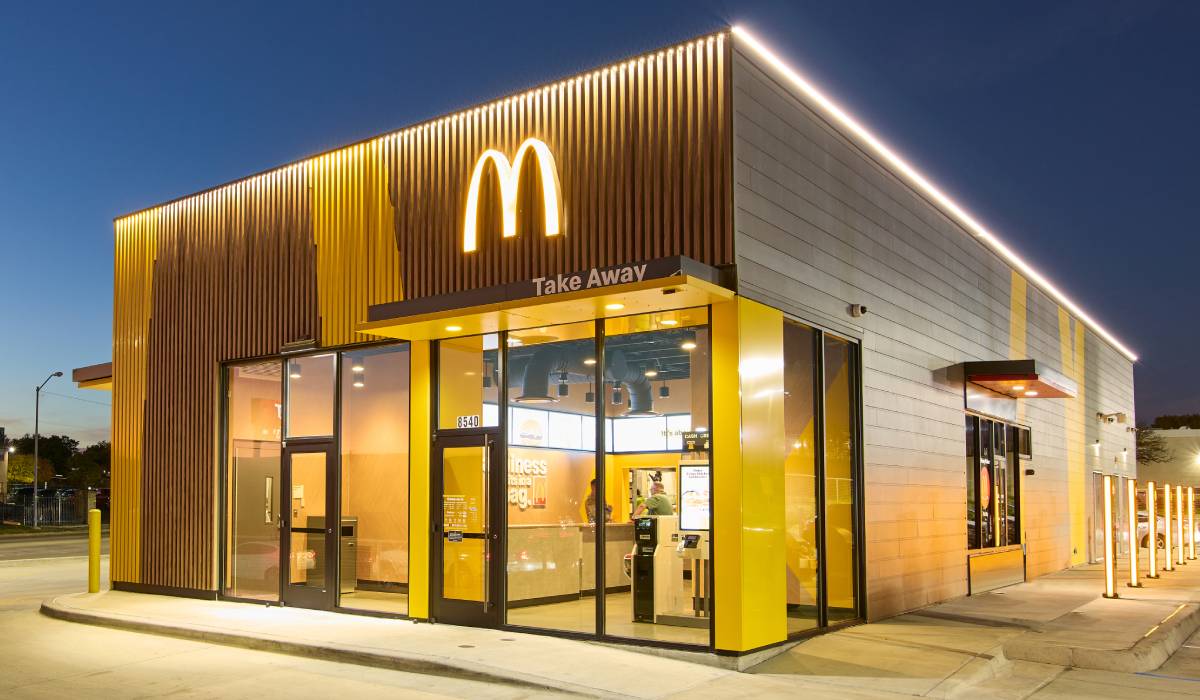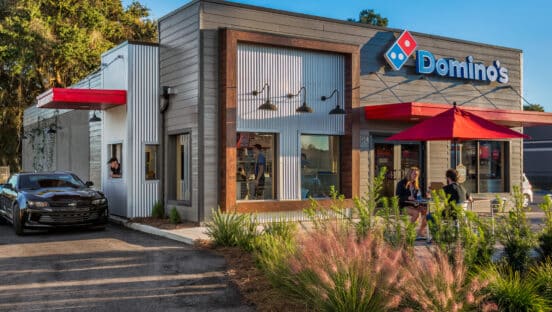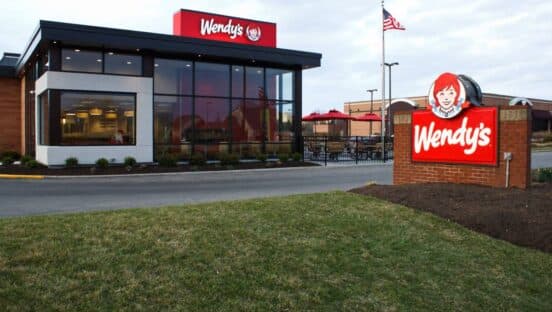Jeff Chandler had no intentions of leaving his post as CEO of Opper-Melang Restaurants when he picked up a phone call from a headhunter in 2016. So when the recruiter asked whether he’d be interested in a new role, Chandler initially declined. She urged that he hear her out, and when he learned the opportunity was at Hopdoddy Burger Bar, a brand he had long admired, he decided to give it a shot.
“I really loved the place I was at previously,” Chandler says. “I thought if I’m just completely open, honest, and forthcoming, I have nothing to lose in this process.”
The recruiter, ClearPath Solutions founder Helen Lao, interviewed him in-depth before arranging phone and in-person interviews with Hopdoddy’s founders. Eventually, both sides agreed that Chandler would make a good fit with the fast casual, and he was hired as Hopdoddy’s CEO in September 2016.
Chandler was so impressed with ClearPath’s thoroughness that he’s used the firm to help fill other executive positions since. But while many searches for top restaurant talent now go through executive search firms, Chandler says he still believes strongly that his success is dependent on grooming others to eventually take over his job. And he’d much rather promote from within.
“I started planning on day one what that looks like. I’m not there yet, but as we build out our executive team, it will become more and more clear,” he says. “My aspiration is to always pick from and pull from within.”
Chandler aims to grow the 21-unit Hopdoddy into a national brand. The company expects to open eight stores in 2018 and another dozen or so in 2019. While he must keep tabs on all sorts of operational and financial details, he believes a CEO’s main responsibility revolves around people.
“Internally for me, I serve the role of the culture curator,” he says. “My job is really to continue to nurture that and to get people to be the closest version of their best self as they possibly can be. I feel like I’m the ultimate steward of the business, so my main focus is people.”
Chandler loves his job and the Hopdoddy brand, but he doesn’t expect to be there forever. He believes a certain dose of change is beneficial; just as football teams see the need to swap head coaches, Chandler thinks restaurant CEOs shouldn’t stick around too long. He believes a tenure of five to 10 years is ideal, giving him enough time to push growth and leave his mark without growing stale or complacent.
“I think there will come a certain point of time where I’ve taken Hopdoddy as far as my skill set goes,” the 50-year-old says. “And I do believe some companies thrive better when they have a change. It’s almost term limits for companies.”
In recent months, many of the limited-service industry’s top brands have seen leadership changes. The chief executives of Chipotle, Starbucks, Domino’s, Papa John’s, and Panera Bread have all stepped down. While such transitions are inevitable, some of those searches have played out in very public processes that can rival the drama of an NCAA Division I head-coach search.
Like a coaching change, CEO transitions are often employed to signal a wider strategy shift or turnaround effort. Chipotle founder and CEO Steve Ells acknowledged as much when he announced plans in November 2017 to step aside and become executive chairman. The burrito chain has struggled to rebound from its 2015 food-safety problems, and sales continue to lag behind expectations.

“I am incredibly proud of Chipotle and our people—and grateful to our loyal customers—and while we are continuing to make progress, it is clear that we need to move faster to make improvements,” Ells said in a news release. “Simply put, we need to execute better to ensure our future success. The board and I are committed to bringing in an experienced leader with a passion for driving excellence across every aspect of our business, including the customer experience, operations, marketing, technology, food safety, and training.” The company hired former Taco Bell CEO Brian Niccol in February.
But experts say searches for top talent are growing more difficult. CEO tenures are growing shorter. And low unemployment rates across the nation are squeezing the market for even top executives.
“It’s harder to find good-quality candidates,” says Patrice Rice, founder of hospitality recruitment firm Patrice & Associates. “This is a good time for us, because they’re not finding them.”
Rice says more companies are turning to recruiters for executive searches in this market. Nowadays, few brands handle their CEO searches internally. “This is a very important role. It’s not one you run an ad on Monster for,” she says. “You have to be networked and you have to know people.”
Even as the market for executives tightens, brands continue reshaping demands for their top brass, Rice says. CEOs must often think in the long-term, but they’re routinely pressured by shareholders or private-equity owners to show tangible results in the short-term. That need for instant gratification can fuel executive “churn and burn,” Rice says.
“If you can’t come in and make it happen, then we’ll go out and find somebody that will,” she says. “And that is a dangerous cycle: If you have too many CEOs, it starts to affect the reputation of the chain. … Then they have to be careful because somebody that’s a racehorse, well now he’s looking for another job. Now you’ll have to go find somebody else to maintain that progress, because he’s looking for his next excitement.”
“My job is really to continue to nurture that and to get people to be the closest version of their best self as they possibly can be.” — Jeff Chandler, Hopdoddy CEO.

The first choice a company faces when looking for a new leader is whether to hire from within or to execute a national search. That decision is often determined by the health of the brand, says David Kincheloe, president of National Restaurant Consultants.
“I think when you’re in a poor financial situation or you have a public image problem or something along those lines, that’s when you start looking externally,” he says. “If things are going well, you should have that candidate in place to just kind of move into the next position.”
Kincheloe says grooming future leaders is a basic executive responsibility. Most companies will perform better by promoting in-house candidates. He’s worked with some firms that employed search firms and hired an outsider only to see that person falter at the helm.
“And we promote somebody from within, and they do amazing,” he says. “I’m always a firm believer that the miracle is usually in the house. I think if you look internally first, it’s the easiest candidate to bring on board. It’s a smoother transition, not quite as shaky, and a lot more comfort to everybody else in the system.”
For some brands, the CEO becomes the very embodiment of the company. That can be good or bad, depending on the brand, Kincheloe says. He points to Papa John’s founder John Schnatter, who announced plans in December 2017 to step down from CEO to become executive chairman of the board. Schnatter starred in television commercials, and his face was printed on cardboard pizza boxes. It all followed the playbook written by KFC founder Colonel Harland Sanders and Wendy’s founder Dave Thomas, who each served as the public face of their respective brands.
But tying a brand image up in one personality can prove risky. Schnatter came under fire for comments about NFL player protests hurting his business. And Chipotle’s Ells has been the most vocal spokesman for the company’s “Food with Integrity” focus. In Chipotle’s case, Kincheloe says, an external leader is needed to set a new direction for the struggling chain.
“There’s a classic example of needing a radical change,” he says. “I think there has to be something unique that comes out of it. You kind of saw that at McDonald’s, where they’ve gone to all-day breakfast, jumping in to try to improve their image with new recipes and so forth. And it’s paying off for them. I think you’ll probably see the same kind of thing happen at Chipotle.”
Bob Gershberg, CEO and managing partner of Wray Executive Search, says the market for executives is not keeping up with demand. Many baby boomer leaders are retiring or moving into consulting work, and the following generations are inherently smaller or less experienced.
“In the executive search business, the demand for our service now is as great as ever,” he says. “That’s the good news. The bad news is that recruiting is tougher than ever.”
Gershberg says outside firms can dive deeper within the talent pool than a company’s board of directors.
“In order to find the best, we leave no stone unturned, go to every one of your competitors. Everyone who’s doing a great job becomes a good candidate. And that’s something companies can’t facilitate themselves,” he says. “It may be somebody that we know; it may be somebody that we don’t know. But it’s typically someone who’s doing a great job for someone else.”
Aside from identifying successful candidates, Gershberg’s firm explores whether the candidate and the company would make a good cultural fit. Recruiters spend time at headquarters with other employees and interview board members.
“We often say in our world there’s an art and a science to what we do,” he says. “The science side is the side that is matching skill sets and competencies. The art side is cultural fit, the success factors within that culture, within that group. Those are the pieces we spend a lot more time trying to get our arms around.”
Fundamentally, Gershberg says, chains are looking for more than just subject-matter expertise. They need emotional intelligence as much as they need a high IQ. They also need to excel at leadership, not just management, he says.
While many firms will conduct national searches for their next CEO, some search processes are less eventful.
In 2011, founder Phil Romano tapped Adam Romo to oversee his Dallas-based Eatzi’s Market & Bakery. Romo was previously CFO of Eatzi’s before leaving to work on a pre-IPO tech startup. And Romano trusted both his startup experience and previous work at Eatzi’s. The decision was made without a search or an executive-recruitment firm—just with a conversation.
“There are a lot of organizations that do the same thing,” Romo says. “If you look around, even large companies, they’ll already have a CEO in mind because of their background, experience, and relationship.”
Romo has no plans to leave the six-unit chain anytime soon. He hopes to help build it out into a national brand. He believes he possesses the correct experience to grow the brand. But he expects the next CEO search will likely look much more formal than the one that recruited him to Eatzi’s.
“It has to be that way,” he says. “As the company gets larger and larger, it will need a leader where having the startup experience really won’t be as critical. It will be somebody that has experience running a larger organization.”
Earlier in his career, Romo worked at fast-growing Brinker International Restaurants. Every few years, he witnessed waves of turnover among executives.
“They were growing so fast, they didn’t possess the skill sets. They had to go outside and hire people in larger organizations with that experience to help take the company to the next level,” Romo says. “The faster the company’s growing, the faster you’re going to see turnover at the executive level. A lot of time, you’re hiring people with a really short ceiling.”
Romo plans to grow the European-style eatery by first filling out the Dallas-Fort Worth metro area, then moving on to other major Texas markets like Houston, San Antonio, and Austin before expanding nationally.
As CEO, he views his job as keeping his entire team—whether they’re from the finance department or the marketing department—focused on the company’s broader objectives: to execute on food quality and customer service. C-suite executives often specialize in one function, touting years of work experience in finance, operations, or marketing. But Romo says a CEO must be more of a jack-of-all-trades.
To help bridge that gap and to train for the future, he’s worked to push his team members outside their comfort zones. Everyone attends the company’s hours-long weekly leadership meetings, even if the day’s topic doesn’t relate to their role or department. And he pairs up varying department heads to work on projects together.
“I try to get them as much exposure to these other areas so that if we do have turnover, we don’t lose all that institutional knowledge from that functional area,” he says. “It’s not perfect, but it really has helped, and it’s really made the whole organization more cohesive.”
In his role as CEO, Romo puts out fires constantly. In a single day, he could tackle a legal issue, address a human resource need, and then dive into a marketing need. It’s a constant challenge, but one he relishes.
“I don’t think I could do anything else after this,” he says. “It’s stressful and it’s challenging, but it’s exciting and gratifying all at once. Once you do this, you can’t imagine anything else.”













